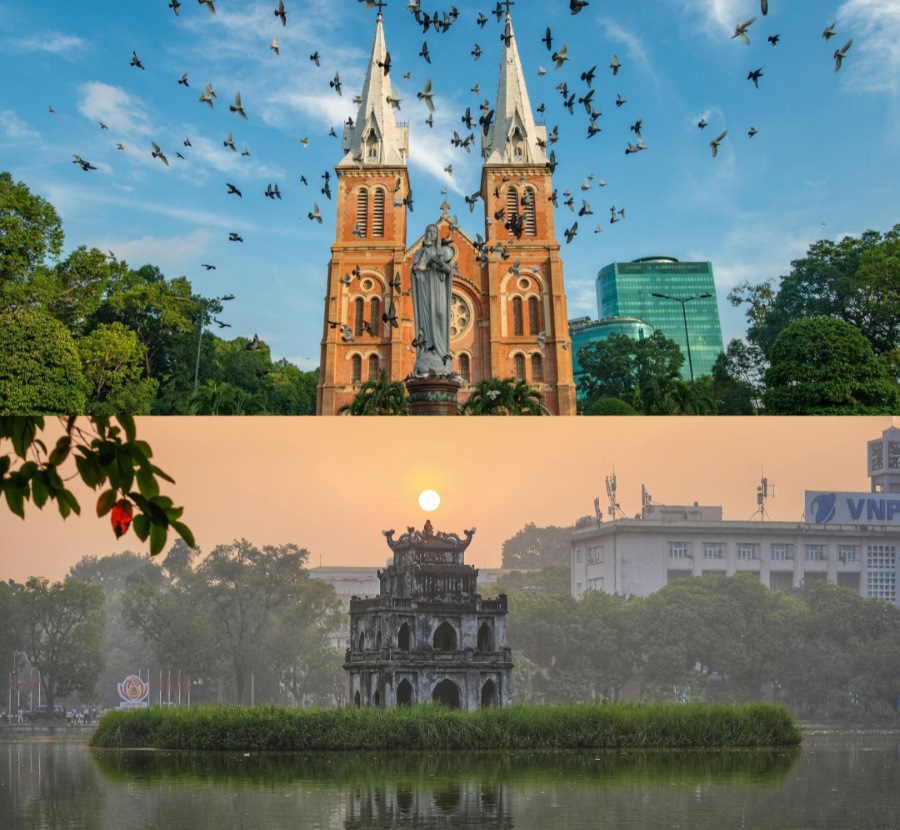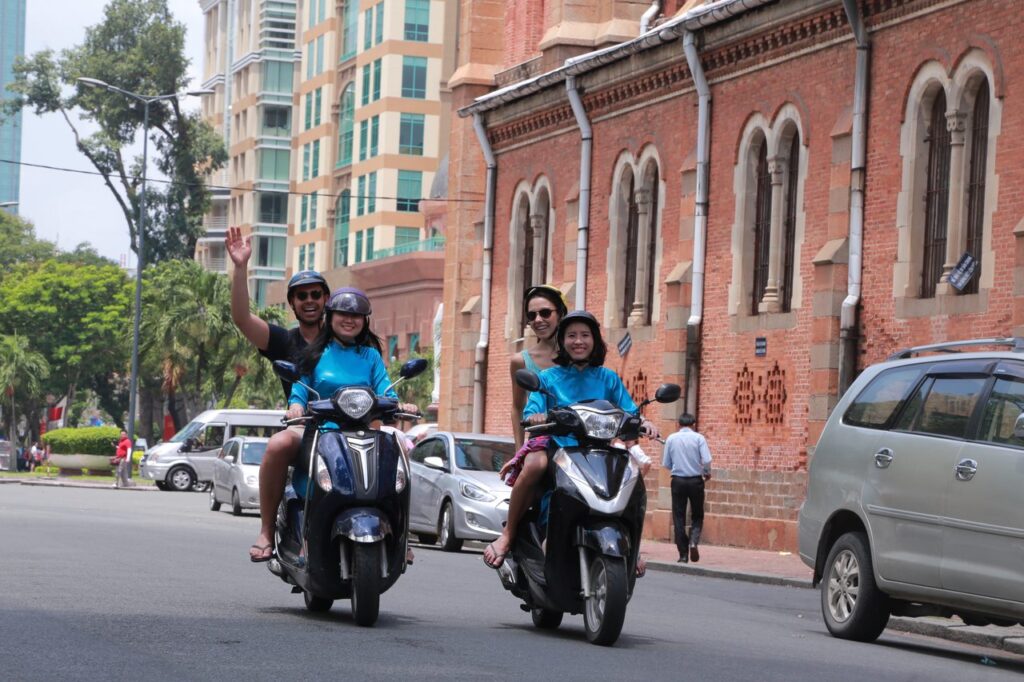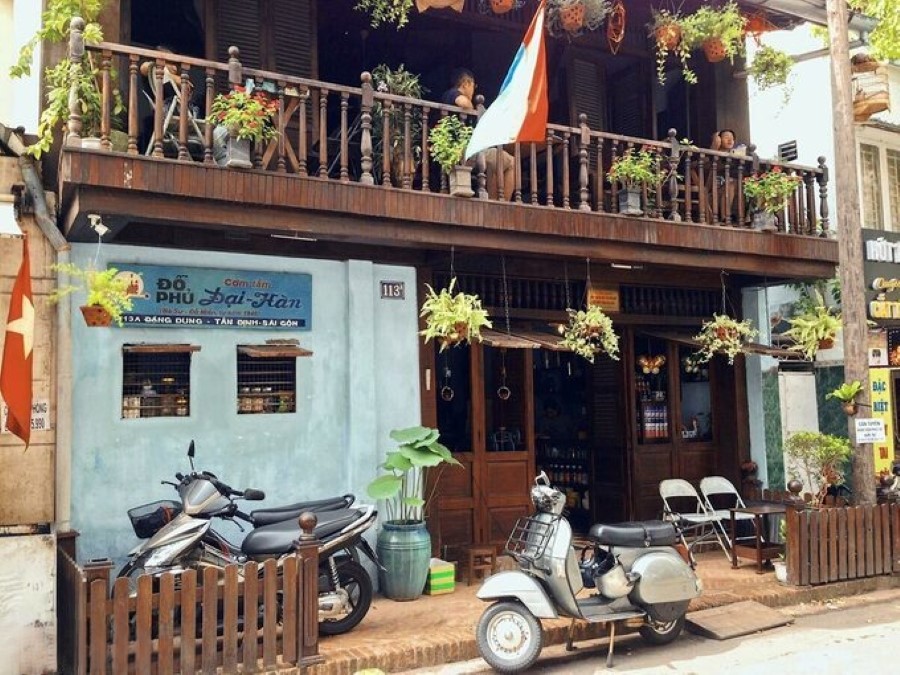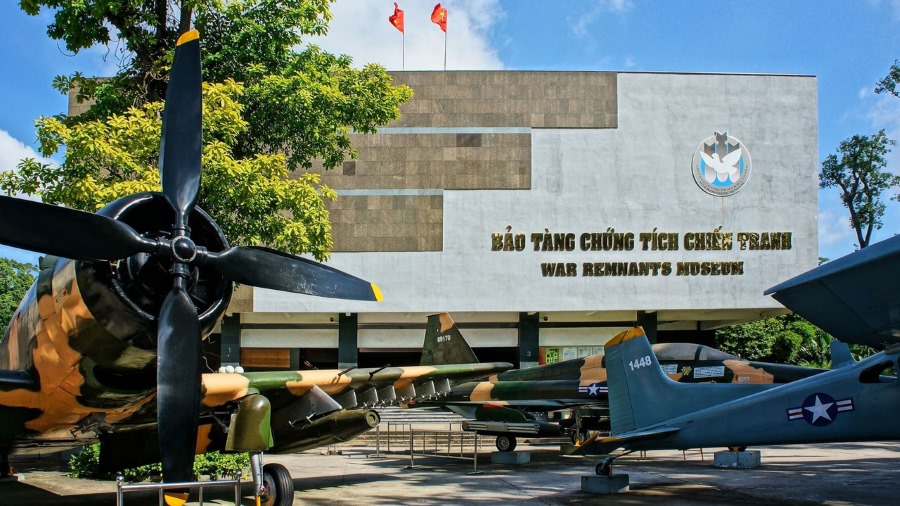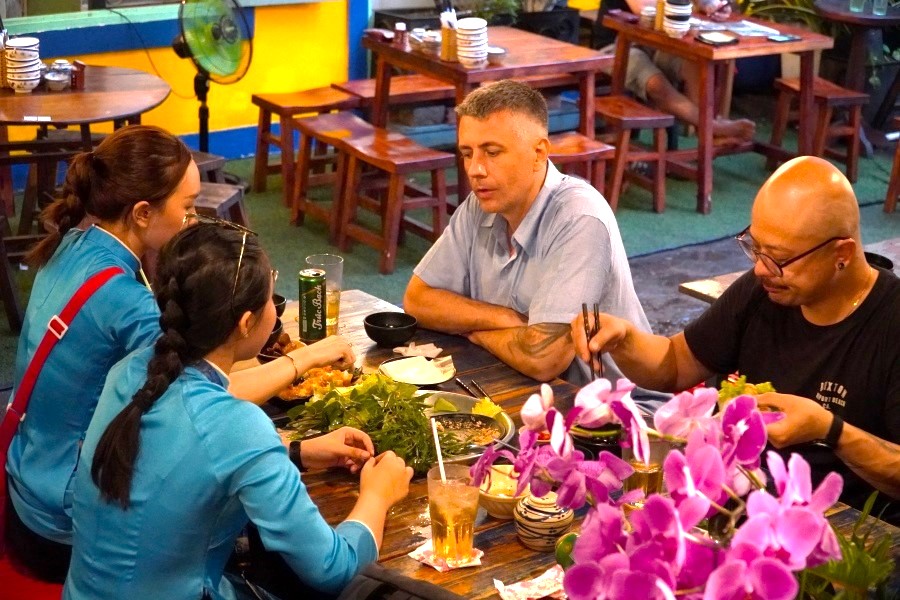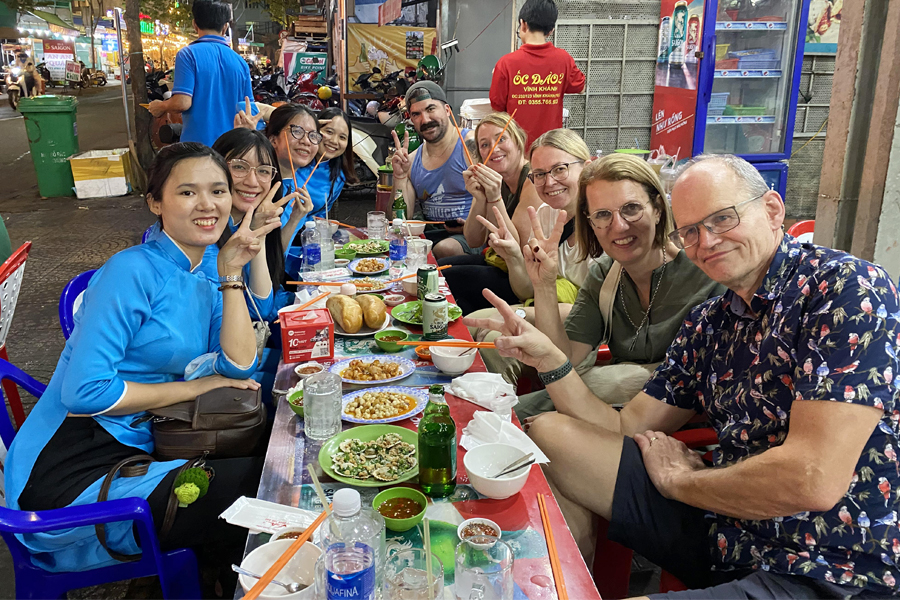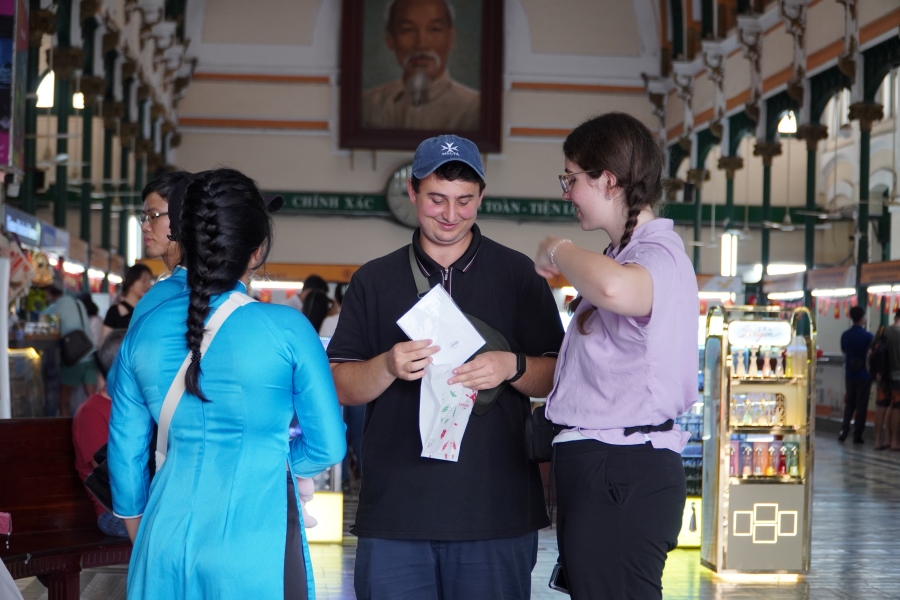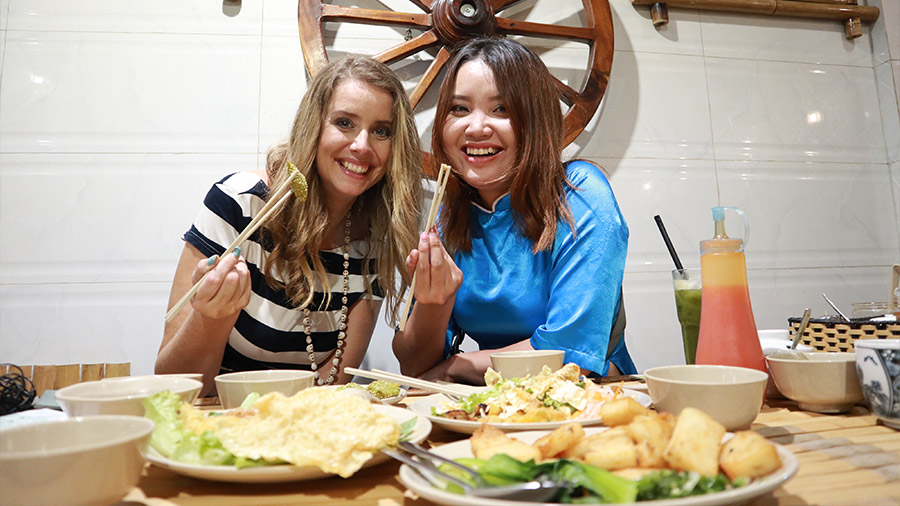Hello, everyone! I am Vy, your local “friend” from Vietnam, with love! I guess that you are here because you want to know more about Vietnam. This is a beautiful country with a rich history and culture. If you’re planning a trip to my country, believe me, it’s important to understand the local currency, the Vietnamese Dong (VND).In this article, we’ll cover everything you need to know about
currency exchange in Vietnam. Get ready to unlock the secrets of currency exchange and ensure a smooth, budget-friendly journey through this captivating destination.
About the Vietnamese Dong (VND) – The Currency of Vietnam
The Vietnamese Dong (VND) has been the official currency of Vietnam since 3 May 1978, replacing the previous currency, the “dong” (a type of Vietnamese piaster).
Vietnamese banknotes feature various designs that often highlight aspects of the country’s culture, history, and natural beauty. These designs may include images of famous landmarks, historical figures, and traditional Vietnamese art. The highest denomination bill, the 500,000 VND note, features a portrait of a woman weaving silk, a tribute to Vietnam’s traditional craftsmanship.
An interesting fact about the Vietnamese Dong is that the denominations on each banknote are often quite high compared to many other currencies worldwide, and some banknotes have significant values. This can create an impression for those unfamiliar with it, especially foreign tourists.
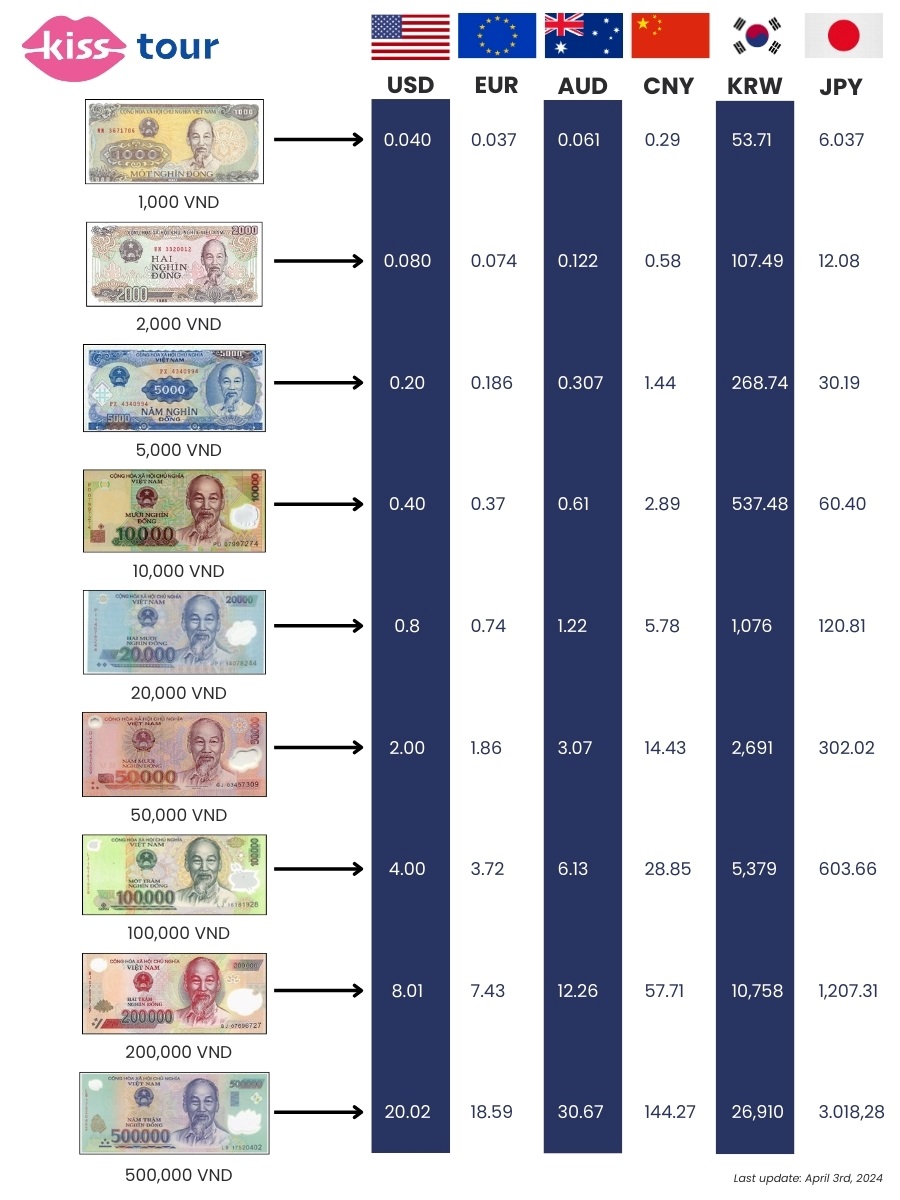
People often joke that if you have a substantial amount of Vietnamese Dong, you can appear to be a millionaire, although the actual value may not be equivalent to that impression when converted to other currencies.
How to calculate the exchange rate?
Check out xe.com, a website that provides complimentary historical charts and rate tables while offering foreign exchange services. Among the valuable features of XE is its currency converter, which provides real-time currency and foreign exchange rates. Additionally, you have the option to download the XE Currency Converter & Money Transfer app on your smartphone, offering a range of excellent features.
Where to exchange money in Vietnam?
1. The Banks
Vietnam boasts approximately 50 public banks, foreign banks, and joint-stock commercial banks. It’s easy to find a bank branch near you, especially in Vietnam’s larger cities.
If you’re not exchanging a substantial amount of money, a simple approach is to enter “bank” in the search box on Google Maps, select the nearest bank branch, and visit it. Conversely, if the exchange rate is a crucial factor for you, it’s advisable to compare the rates offered by different banks before making a decision.
The list of some bank branches around the tourist area of Hanoi:
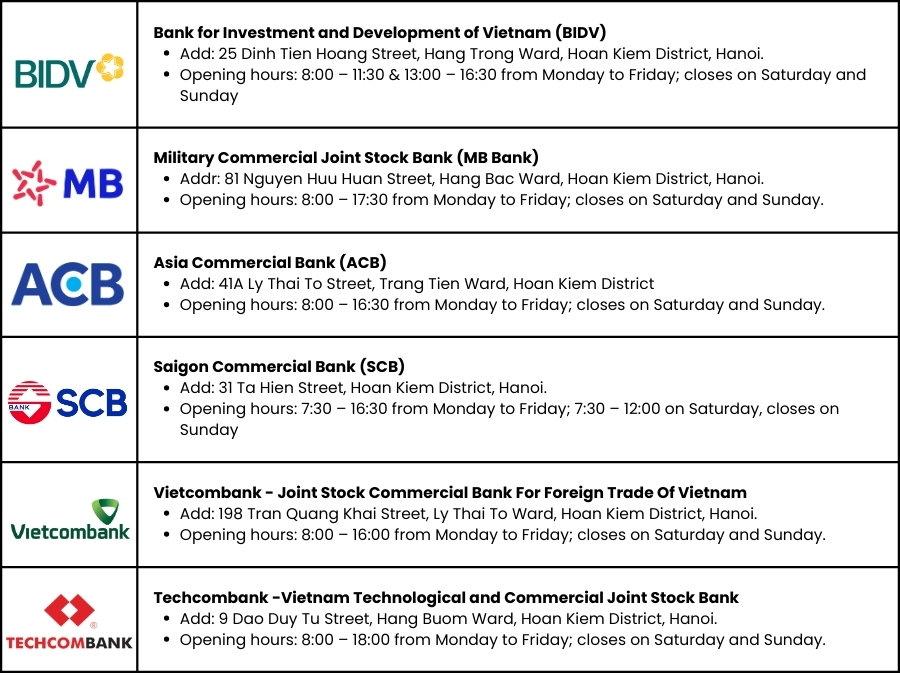
Tips: To find the closest bank to you, just open Google Maps and search for “bank” in English.
The list of the bank branches in Ho Chi Minh City:
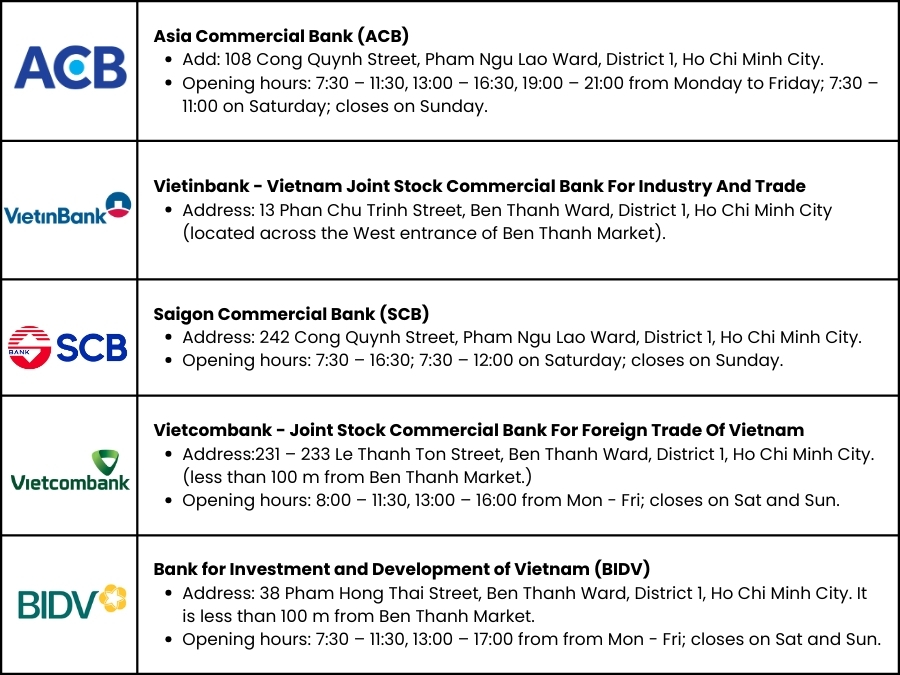
2. The Airports
At the airport, numerous money changers are available. While the exchange rates may be relatively low, it proves convenient for passengers to exchange currencies post-immigration. It is advisable to exchange a sufficient amount of money to cover expenses such as taxi fares, bus tickets, food, drinks, or tours after the flight.
Noi Bai International Airport (Hanoi)
- Location: Money exchange are located in both the arrival and departure areas of Terminal 1 and Terminal 2. Look for signs indicating “Foreign Exchange” or “Currency Exchange”.
- Popular Banks: Counters of Vietcombank, VietinBank, BIDV, Agribank, and other major banks are usually available.
Tan Son Nhat International Airport (Ho Chi Minh City)
- Location: Exchange counters are located throughout the arrivals and departures areas.
- Popular Banks: Similar to Noi Bai, you’ll find counters from major Vietnamese banks.
Da Nang International Airport (Da Nang City)
- Location: Money exchange counters can be found in the arrivals area.
- Popular Banks: Look for counters from the major Vietnamese bank.
***Additional Tips:
- ATMs: Consider using an ATM to withdraw VND directly. Check with your bank beforehand to understand their international fees.
- Credit Cards: Major credit cards are widely accepted in Vietnam, especially in larger cities and tourist areas.
- Tipping in USD: While USD might be accepted as tips in some touristy spots, it’s generally more beneficial and respectful to use local currency (VND).
3. Jewelry stores and gold shops
Reliable jewelry stores and gold shops in Ha Noi:
- Quoc Trinh Gold Shop: 27 Ha Trung Street, Hoan Kiem District, Ha Noi. It’s a 2-minute walking distance from the Vietnam National Tuong Theater.
- Kim Linh Jewelry: 67 Hang Bac Street, Hoan Kiem District, Ha Noi. It’s a 2-minute walking distance from Hanoi Ancient House.
- Tu Binh Jewelry: 54 Hang Bac Street, Hoan Kiem District, Ha Noi. The jewelry shop is across from Queen Hotel Hanoi.
- Phu Van Jewelry: 25 Luong Ngoc Quyen Street, Hang Buom Ward, Hoan Kiem District, Ha Noi. The jewelry shop is located across from the Vietnam Guest House.
- Manh Hung Jewelry: 51 Ha Trung, Hoan Kiem District, Ha Noi. It is 2 minutes walking distance from the Vietnam National Tuong Theater.
- Hanoi Money Exchange: 19B Hang Be Street, Hoan Kiem District, Ha Noi. The shop is 5 minutes on foot from Hoan Kiem Lake.
Reliable jewelry stores and gold shops in Ho Chi Minh City:
- Ha Tam Jewelry Shop (Ha Tam Money Changer), 2 Nguyen An Ninh Street, Ben Thanh Ward, District 1, Ho Chi Minh City. It is located across from the west entrance of Ben Thanh Market.
- Ben Thanh Money Changer, 30-36 Phan Boi Chau, Ben Thanh, District 1, Ho Chi Minh City. It is located about 9 meters away from the west entrance of Ben Thanh Market.
- Hoang Thu, 178 Le Thanh Ton, Ben Thanh, District 1, Ho Chi Minh City. It is located across from the north entrance of Ben Thanh Market.
- Ben Thanh Jewelry, 166 Le Thanh Ton Street, Ben Thanh Ward, District 1, Ho Chi Minh City.
- Kim Mai Gold Shop, 84C Cong Quynh Street, Pham Ngu Lao Street, District 1, Ho Chi Minh City. Located in the Saigon Backpacker Area, so it’s a favorite place for backpackers to exchange currency.
Guidelines for Currency Exchange in Vietnam
- Carry your passport if you exchange a large amount of currency.
- Before exchanging money, compare exchange rates offered by different banks or currency exchange providers. This ensures you get the best value for your currency.
- Be aware of any fees or commissions associated with the currency exchange. Some providers may charge additional fees that can impact the overall value of the exchange.
- ATMs in Vietnam are widely available, and using them to withdraw local currency can be a convenient and cost-effective option. However, you may encounter an additional international transaction fee from your bank – check with your bank before your trip.
- Retain receipts from your currency exchange transactions. They may be useful for record-keeping, and some establishments may require proof of currency exchange.
- Exercise caution when considering street exchange services. While they may offer seemingly attractive rates, the risk of scams or receiving counterfeit currency is higher.
How to use currency in Vietnam in the right way?
After exchanging your currency for the Vietnamese Dong, there are some important considerations to keep in mind for using the Vietnam Dong appropriately during your journey:
- Paper notes denote smaller denominations, while polymer notes represent larger denominations. Keep that in mind!
- The 20,000 Dong and 500,000 Dong notes share the same color, leading to confusion for many foreigners. Make sure you exercise caution when using these notes, and double-check the value of the note you’re handing over. While honest individuals will return your money, others may not. Good and bad people exist in every country.
- If you’re wondering about the acceptance of US dollars in Vietnam, the answer is yes; they are widely accepted in most cities. However, for a more favorable conversion rate, it’s advisable to use Vietnamese Dong instead.
By following these guidelines, I believe our travelers can navigate the currency exchange process in Vietnam more effectively and ensure a smooth financial transition during your visit. KissTour hopes you will have a perfect trip to Vietnam!

